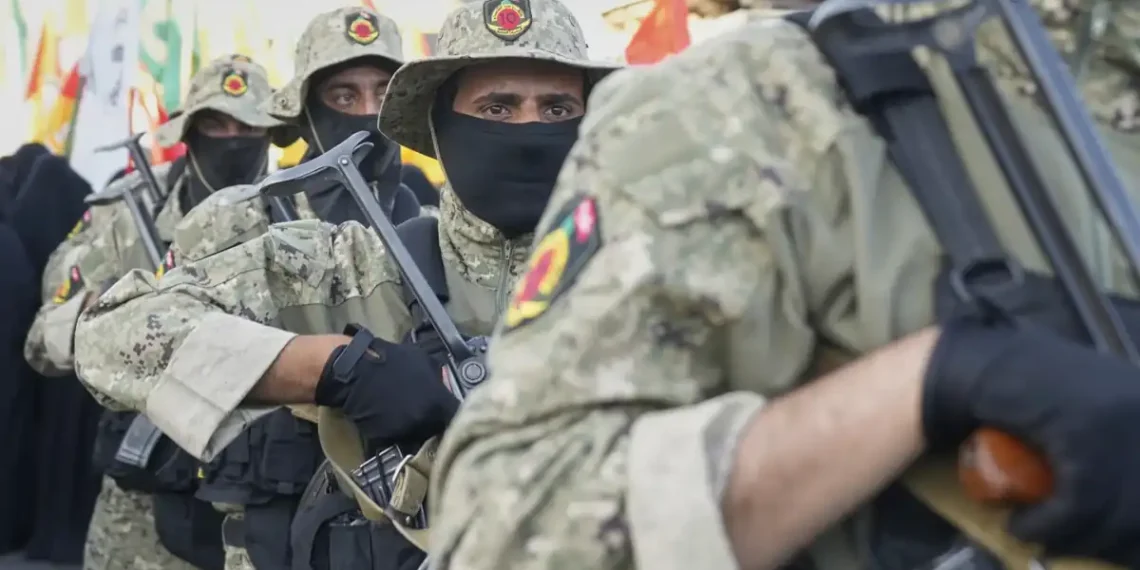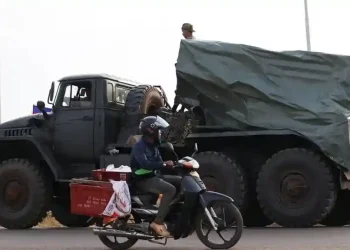Why Hezbollah and Iran’s Other Allies Are Sitting Out the Israel-Iran War — For Now
As Israel and Iran exchange heavy fire and the United States enters the fray with strikes on Iranian nuclear sites, some of Tehran’s most powerful allies — including Hezbollah and Iraqi militias — are conspicuously staying on the sidelines.
While these groups have long served as Iran’s frontline defense against Israel and the West, the expected retaliation from Hezbollah and its regional partners has so far been muted. For now, the war that many feared would draw in the entire Middle East remains largely contained to Iran and Israel.
Hezbollah Holds Back Despite Fiery Rhetoric
Hezbollah, once described as Iran’s most formidable regional proxy, has condemned Israel’s actions and the recent U.S. airstrikes. But condemnation has not translated into action.
Following the U.S. strikes on Iranian nuclear facilities, Hezbollah issued a strongly worded statement calling on the “Arab and Islamic world” to support Iran — but stopped short of declaring involvement or launching attacks. Just days earlier, the group’s leader, Naim Qassem, had promised Hezbollah would “act as we deem appropriate.”
So far, “appropriate” appears to mean restraint.
Lebanese government officials have urged Hezbollah to stay out of the war, warning that Lebanon cannot afford another devastating conflict. U.S. envoy Tom Barrack echoed that during a recent visit, calling any move to join the war a “very bad decision.”
Iraqi Militias Stay Silent After U.S. Strikes
In Iraq, powerful Iran-backed groups like Kataib Hezbollah have also stayed quiet — even after previously threatening to attack U.S. forces if Washington entered the conflict. Since the U.S. bombed three Iranian nuclear sites on Sunday, these militias have yet to respond.
Experts suggest that both domestic political interests and strategic caution are at play.
“Iraq’s Iran-aligned militias are now deeply connected to the state,” said Renad Mansour of Chatham House. “They’re benefiting politically and economically. They’ve seen what’s happened to Hezbollah and Iran and are worried they might be next.”
Unlike Hezbollah — which operates largely as a militant faction within Lebanon — Iraq’s main militias are officially part of the country’s defense forces, giving them a stake in maintaining national stability.
The Houthis Watch and Wait
Yemen’s Houthi rebels, another key member of the so-called “Axis of Resistance,” have also held back — at least for now.
Last month, the Houthis struck a deal with the U.S. to stop attacks on American vessels in the Red Sea in exchange for a halt in U.S. strikes on Yemen. The deal appears to be holding despite Sunday’s escalation, though the group warned it may resume attacks if the U.S. deepens its involvement in the Israel-Iran war.
In a statement after the U.S. strikes on Iran, the Houthis called the move a “grave escalation,” but did not follow through with military action.
Why They’re Holding Back
Several key factors seem to be keeping Iran’s allies on the sidelines:
- Hezbollah has been weakened militarily, especially after a brutal war with Israel last year that killed its former leader Hassan Nasrallah, cost the group much of its arsenal, and left southern Lebanon in ruins.
- Supply routes through Syria have collapsed, following the stunning fall of President Bashar Assad to rebel forces in December. “Hezbollah has been degraded at a strategic level and cut off from vital Iranian supply chains,” said Andreas Krieg of King’s College London.
- Iraqi militias and the Houthis lack the long-range strike capability to hit Israel with the kind of force Hezbollah once had.
- Iran may be signaling its proxies to remain intact and conserve strength, rather than risk being decimated in a war Tehran hasn’t fully committed to expanding.
“They’re likely lying low because Iran wants these groups to stay operational,” said Tamer Badawi, a fellow at the Center for Applied Research in Partnership with the Orient.
Still Early Days?
Despite the current restraint, some warn that escalation remains a very real risk.
“The battle is still in its early stages,” said Qassem Qassir, a Lebanese analyst with ties to Hezbollah. “Even Iran hasn’t bombed American bases — it has only targeted Israel.”
If the conflict expands or Israel or the U.S. strikes again, Iran’s regional allies may feel compelled to join in. For now, though, the Axis of Resistance appears to be waiting, watching — and weighing the costs of war.
This article was rewritten by JournosNews.com based on verified reporting from trusted sources. The content has been independently reviewed, fact-checked, and edited for accuracy, neutrality, tone, and global readability in accordance with Google News and AdSense standards.
All opinions, quotes, or statements from contributors, experts, or sourced organizations do not necessarily reflect the views of JournosNews.com. JournosNews.com maintains full editorial independence from any external funders, sponsors, or organizations.
Stay informed with JournosNews.com — your trusted source for verified global reporting and in-depth analysis. Follow us on Google News, BlueSky, and X for real-time updates.














